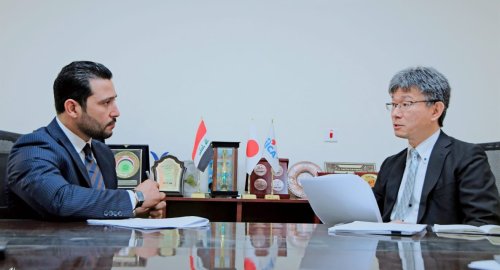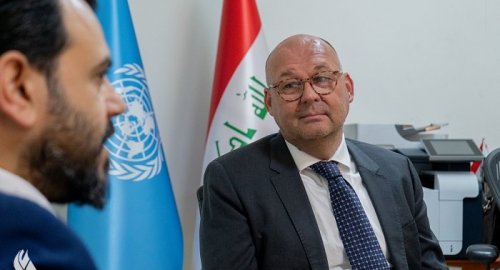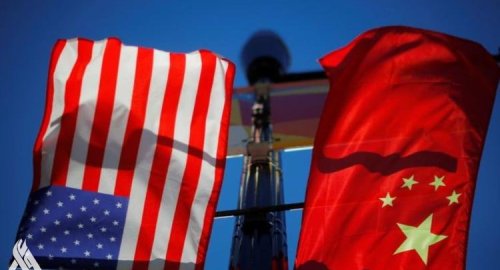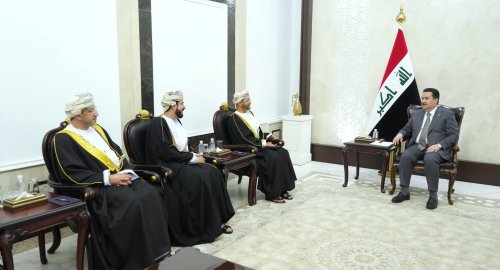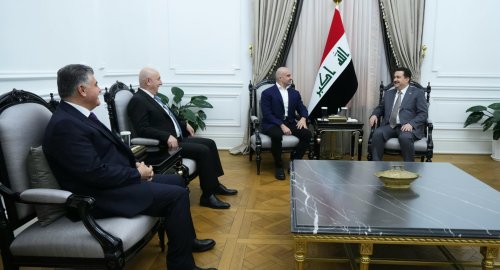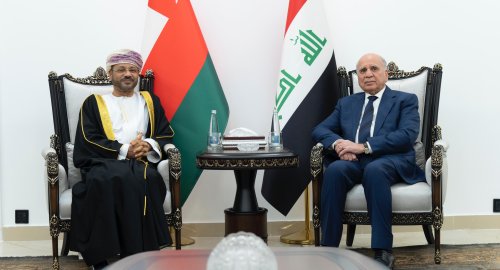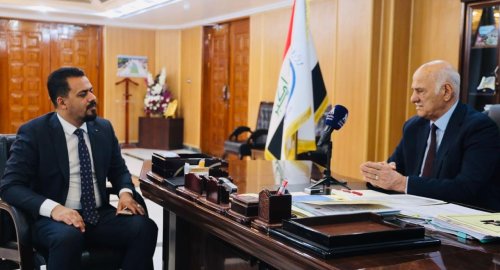
Minister of Water Resources: Turkish Companies to Join Framework Agreement to Increase Iraq's Water Shares

- 25-10-2024, 13:42
Baghdad – INA
The Minister of Water Resources, Aoun Diab, confirmed on Friday, the awarding of six projects to Turkish companies aimed at developing the infrastructure for irrigation projects. He noted that a technical delegation will visit Turkey to discuss water management and the implementation of irrigation projects.
In a statement to the Iraqi News Agency (INA), Diab stated, “Turkey's water policy relies on maintaining a high reservoir level in dams and storage facilities for energy production, due to their limited oil resources. This leads to a focus on maximizing energy output through dams, which is why we consistently observe Turkish dams at full capacity.”
He added, “In Iraq, dams utilize water primarily for irrigation rather than energy production. Energy generation is considered a supplementary function. Iraq has gas and steam power plants, and while hydroelectric power is beneficial as it is clean energy, it is not the primary determinant for dam operations. Sometimes, energy generation from dams is sacrificed to ensure adequate irrigation water supply, as well as to meet agricultural, drinking, and human service needs, in addition to supporting the marshlands.”
Diab highlighted the significant influence Turkey has on Iraq, especially following the recent visit of the Turkish President to Iraq and his meeting with the Prime Minister, which resulted in a framework agreement deemed one of the most important agreements with practical benefits for both parties. He clarified that the agreement included a request for Turkey to assist in implementing the infrastructure for irrigation projects within Iraq.
He noted, “Iraq has reassessed its water usage strategies; however, this requires substantial financial investment and time for effective change.” He mentioned that an agreement was reached with the Turkish side to construct the infrastructure for irrigation projects by specialized Turkish companies, with several projects identified, the most notable being the Al-Amarah irrigation project, which is intended to develop in a modern manner using closed conduit water transfer methods to meet the water needs of farmers.
He further explained that “the Turkish side has expressed readiness to implement irrigation projects, and six projects have been presented to them. Three of these involve the establishment of irrigation and drainage networks and the comprehensive reclamation of land through modern techniques, while the other three projects focus on water harvesting dams, which complement our plans for rational water use and serve as an artificial recharge source for groundwater. We have had successful experiences in utilizing water stored in water harvesting dams for groundwater recharge in various locations.”
He continued, “The awarded projects are being closely monitored by the Advisory Board in the Council of Ministers in direct coordination with the Turkish side. Preliminary designs for these projects have been submitted, and we have requested Turkey to update these designs according to modern standards.” He emphasized, “If Turkey engages in the execution of these projects, such as the Al-Amarah irrigation project, they will gain insight into the water needs in southern Iraq, particularly in a crucial area, thus facilitating a resolution regarding water wastage concerns. A technical delegation from our side will soon meet with the Turkish representatives in Ankara.”
China Says It 'Firmly Opposes' US Military Aid To Taiwan
- International
- 07:36
First joint picture of Greenland Ice Sheet melting, ESA
- Multimedia
- 09:28
US Central Command: We killed ISIS terrorist leader Abu Yusuf in Syria
- International
- 24/12/20
Liverpool compete with Real Madrid to sign Olympique Lyonnais star
- Security
- 24/12/19
ISC, ADX discuss Strengthening Economic Ties
- Economy
- 24/12/16
Iraq assumes presidency of Arab Investment Company’s Executive Board
- Economy
- 24/12/17
